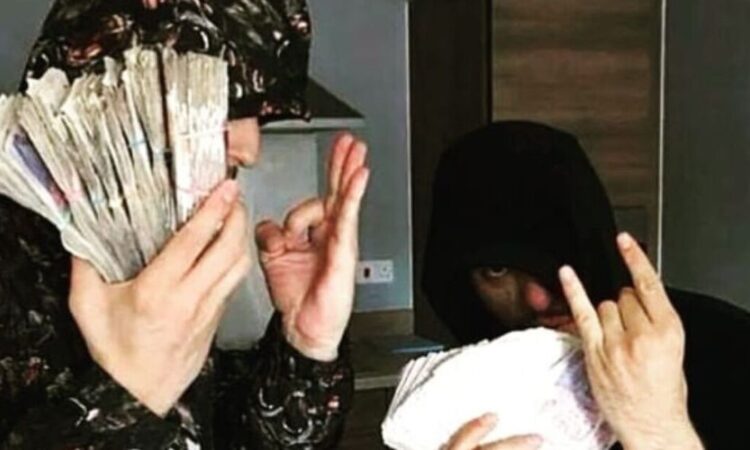
Experts have revealed the ways social media networks TikTok and Instagram are profiting from having creators promoting a criminal lifestyle in the UK on their platforms.
A six-month Express investigation found one of Albania’s biggest online celebrities, Aleks Visha, rose to fame through live online tours of UK cannabis farms and boasts about his criminal exploits.
And, according to Albanian social media expert Tomi Kallanxhi, TikTok’s system enabling fans to tip their favourite online stars with real cash meant he was a good source of revenue.
Since 2021, the Chinese-owned company has allowed users to buy credits in its online store they can then use to send ‘gifts’ to creators of videos they watch. This digital ‘present’ can then be redeemed by the online star after TikTok has taken a 50% commission.
Social media celebrities frequently encourage viewers to send them money via the social media platform, competing against each other in crude video games to generate more donations.
“TikTok wins from these guys because they take 50% of the money [they generate],” Tomi Kallanxhi added.
“So they like to keep these controversial people on the platform.”
University of Essex academic Dr Alexandros Antoniou explained that Instagram generates revenue from dangerous content by showing adverts to those who stay on their platforms watching it.
“We know that the business model operates [by] drawing users in and pushing content towards them that engages them more and more and more,” he said.
“The content is monetised by engaging users [by] essentially making it difficult for them to stop [watching videos].”
The social media giants did not address these issues directly when asked by the Express but in a statement TIkTok said it “works closely with UK law enforcement”.
“We continue to strictly maintain a zero tolerance approach to human exploitation and proactively find over 95% of content we remove for breaking these rules,” a spokesperson added.
Instagram’s owners Meta’s spokesperson said “buying, selling or soliciting drugs is not allowed on our platforms; our teams use a mix of technology and human review to remove this content as quickly as possible, and we work with the police and youth organisations to get better at detection.“






